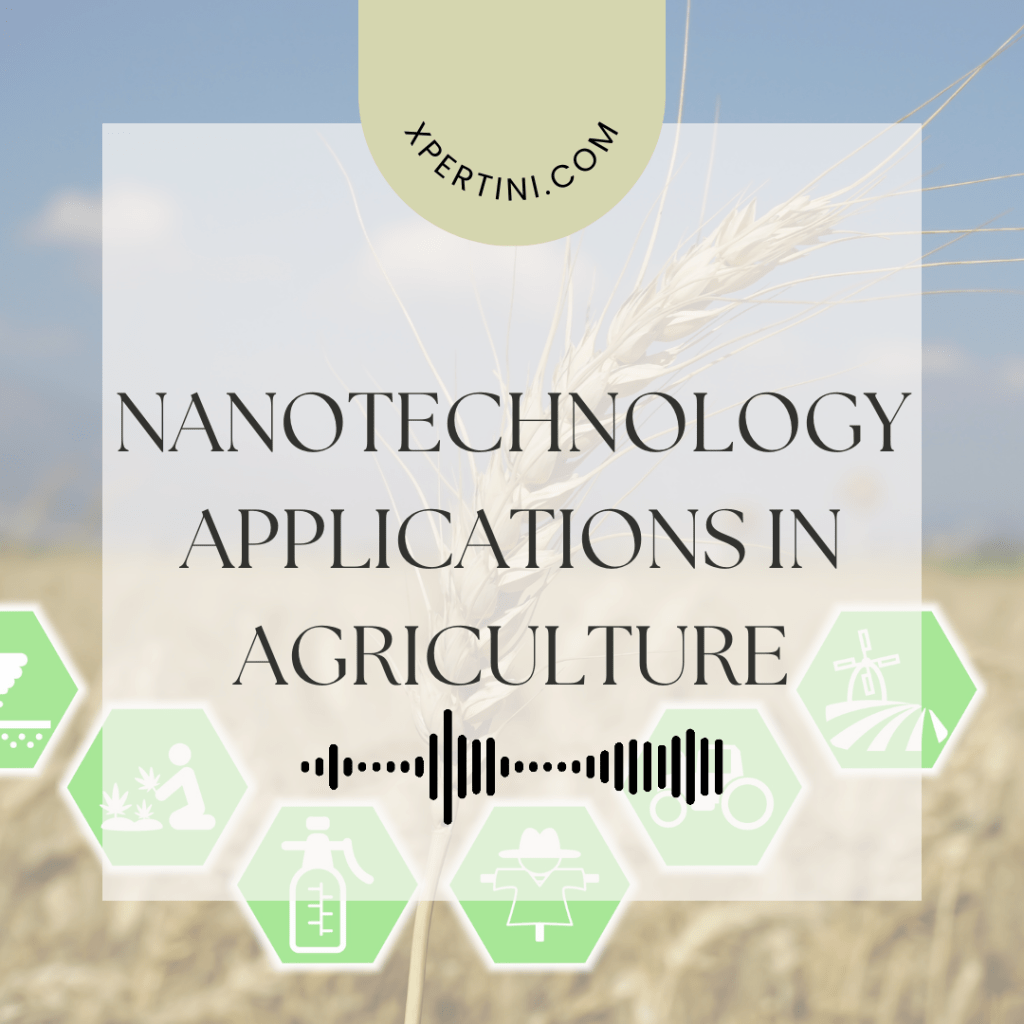Nanotechnology Applications in Agriculture
Course Summary
This comprehensive nanotechnology in agriculture course provides a thorough exploration of the intersection between nanoscience and agriculture. Aimed at aspiring professionals and those seeking to deepen their knowledge, the course navigates through key aspects of nanotechnology applications in the agricultural sector.
The journey commences with an insightful overview of nanotechnology’s historical evolution in agriculture, highlighting breakthroughs that have shaped the field. Participants delve into the fundamentals of nanotechnology, revealing the basic principles and concepts that govern this transformative science. The discourse then shifts to nanomaterials, elucidating their unique properties relevant to agriculture, providing a foundational understanding for subsequent chapters.
The course gains practical momentum as it explores nanotechnology’s pivotal role in crop improvement. Case studies spotlight successful interventions, demonstrating how nanotechnological approaches enhance crop yield and quality. Precision agriculture takes center stage, with a focus on nanosensors and their applications in monitoring and optimizing agricultural processes. Learners gain insights into the tangible impact of nanotechnology on soil health improvement, water purification, and conservation.
Addressing critical concerns, the course scrutinizes nanotechnology-based approaches to pest and disease management. It navigates the delicate balance of reaping benefits while acknowledging potential risks associated with nanopesticides. Participants are equipped with knowledge about the current regulatory landscape, fostering an understanding of safety protocols crucial for the responsible implementation of nanotechnological solutions in agriculture.
The economic implications of adopting nanotechnology in agriculture come to the forefront, with an economic analysis that provides a pragmatic lens. The course concludes with a forward-looking perspective, exploring future trends and potential disruptions in the agricultural industry.
Throughout this intellectual expedition, learners are not only exposed to theoretical concepts but are also guided on potential career paths. The course unfolds as a valuable resource, empowering individuals to make informed decisions in pursuing further education or entering the workforce in this evolving field.
Course Overview
This course delves into the revolutionary integration of nanotechnology in agriculture, exploring its applications, benefits, and potential impact on sustainable farming practices. Participants will gain a comprehensive understanding of how nanotechnology can transform traditional agriculture, leading to increased efficiency, resource optimization, and environmental sustainability.
Course Objectives
- Understand the fundamentals of nanotechnology and its relevance to agriculture.
- Explore real-world applications of nanotechnology in various agricultural practices.
- Evaluate the potential benefits and challenges of implementing nanotechnology in farming.
- Develop critical thinking skills to analyze the ethical and environmental implications.
- Acquire practical knowledge on nanomaterial synthesis and characterization techniques.
- Collaborate on case studies showcasing successful nanotechnology interventions in agriculture.
- Gain insights into regulatory frameworks and safety considerations related to nanotechnology in agriculture.
- Assess the economic impact of nanotechnology on the agricultural industry.
- Foster innovation by brainstorming potential future developments in the field.
- Formulate informed perspectives on the role of nanotechnology in sustainable agriculture.
Course Outcomes
- Identify key nanotechnological principles applicable to agriculture.
- Demonstrate proficiency in evaluating economic impact on different sectors of the agricultural industry.
- Apply nanomaterial synthesis techniques in simulated agricultural scenarios.
- Collaborate effectively in analyzing case studies of successful nanotechnology interventions in agriculture.
- Develop a comprehensive understanding of regulatory frameworks governing nanotechnology in agriculture.
- Assess potential future developments in nanotechnology for agriculture.
- Demonstrate critical thinking skills in proposing novel applications of nanotechnology.
- Engage in discussions on societal implications of widespread nanotechnology adoption in farming.
- Showcase ability to innovate by proposing novel applications of nanotechnology in agriculture.
- Compile a well-researched perspective on the role of nanotechnology in achieving sustainable agriculture.
Course Audience
- Agriculture students and professionals seeking a cutting-edge understanding of technological advancements.
- Environmental scientists interested in the intersection of nanotechnology and sustainable farming.
- Innovators and entrepreneurs exploring opportunities in the agricultural technology sector.
- Policy-makers and regulators involved in shaping frameworks for emerging technologies in agriculture.

